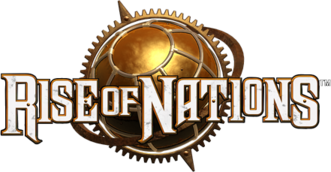Napoleon Bonaparte was a legendary French military commander and emperor during the late eighteenth and early nineteenth centuries.
His tactical and strategic brilliance on the battlefield helped inspire a fierce loyalty in the hearts of his soldiers and the French people, and with these assets, he revolutionized not only warfare but also law and politics through his eventual domination of the majority of the European continent. His campaigns became the stuff of military legend as his troops continuously outmaneuvered and outfought their opponents; traditional armies stood little chance against Napoleon's forces, instead being forced to commit to asymmetrical guerrilla warfare as seen in the Peninsular War.
At age 26, he was appointed leader of his first military expedition against the Austrians and Italians. He lost almost no battle throughout the subsequent year it took him to conquer the entire peninsula. As a result of this campaign and another in Egypt that saw his troops fighting in the shadow of the Pyramids themselves, Bonaparte engineered a coup that saw the ousting of the royalist faction. From there, France swiftly fought her way through the nations of Europe; with Bonaparte at their head, the French army became a terrifying force.
Numerous victories enabled him to force a battered Europe into peace with the Treaties of Tilsit in 1807; two years later, the British would again contest French domination of the mainland in the War of the Fifth Coalition. His forces again won out, however. In his conquered territories, he instituted the Napoleonic Codes, a series of laws that today form the basis for the legal systems of over seventy countries.

Napoleon Crossing the Alps, an 1805 painting by French artist Jacques-Louis David.
Despite these successes, there were major setbacks. Napoleon and his troops also faced brutal conditions during his campaign against Russia; he failed to account for the bitterness of Russian winters and lost the vast majority of troops and materiel committed to the invasion. His empire also had significant trouble establishing a naval presence; Lord Admiral Horatio Nelson savaged the French fleet at Trafalgar, though he perished in the effort.
Napoleon was eventually contained and defeated by a coalition of opposing powers and his own hubris; exiled to the Isle of Elba with a thousand of his best troops as an honor guard, he eventually returned to France and seized control of the entire nation once again, without firing a single shot. Re-mobilizing the battered French people against a renewed alliance against him, Bonaparte was eventually defeated again at the infamous Battle of Waterloo by a multinational force headed by Arthur, Duke of Wellington.
He was again exiled, this time to Saint Helena, where he died in 1821 at the age of 51. In the words of one historian, "The ideas that underpin our modern world—meritocracy, equality before the law, property rights, religious toleration, modern secular education, sound finances, and so on—were championed, consolidated, codified and geographically extended by Napoleon." His legacy lives on through hundreds of books, films, games and other depictions of his almost-unparalleled military acumen, as well as his influence on culture, law and combat centuries after his death.
